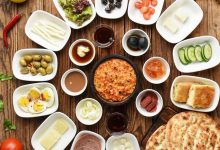biotin for weight loss reviews
biotin for weight loss – Do low doses of biotin supplements prevent weight loss? No, since B7 is a necessary water-soluble vitamin that helps in the metabolism of food and regulates gene expression in cells. Fat, glucose, and amino acids are formed and broken down by enzymes that require B7. Medical evidence and documents do not support the use of B7 for weight loss in people with high triglycerides, blood sugar, and insulin levels.
Food sources and dietary recommendations:
Those who have a healthy diet and a balanced lifestyle rarely have a B7 deficiency. Those who smoke, take medications, or love raw eggs are more likely to suffer from B7 deficiency. B7 absorption can also be reduced by genetic diseases, which can be diagnosed as early as childhood. The daily requirement for B7 for adults is 300 micrograms. Many foods contain B7, such as whole grain bread, nuts, fish, fruits and vegetables, and cooked eggs.

How does biotin affect the body’s metabolism?
Excess calories are converted into fat by the body. Using an enzyme containing protein is the first step. Acetyl-coa carboxylase, or ACC, is an enzyme that, according to studies conducted on mice in 2007, reduces fat production and its storage as triglycerides, as well as high fat consumption. Enzymes that break down proteins into amino acids require vitamin B7. Neither medical evidence nor documents support the use of vitamin H supplements for weight loss.
Lipid levels in the blood are influenced by biotin:
biotin for weight loss – In addition to elevated triglyceride levels, overweight and obesity are risk factors for heart disease. Taking a high dose of B7 along with chromium reduced the level of triglycerides in diabetic patients according to research conducted in 2006. B7 decreased triglyceride and cholesterol levels in diabetic and non-diabetic people with high triglyceride levels, according to a study in Biomedicine and Pharmotherapy. High cholesterol or triglycerides should not be treated with B7. Consult your doctor or health care provider before taking supplements.
Biotin and chromium affect blood sugar in the following ways:
Type 2 diabetes is associated with obesity and high blood sugar levels. According to a study published in the British Journal of Nutrition in 2013, B7 reduced blood sugar levels and insulin sensitivity in diabetic rodents. The results of the studies conducted in the Journal of Technology and Treatment of Diabetes showed that the use of high doses of B7 supplements and chromium supplements along with other drugs reduces blood sugar levels in diabetic patients, but other researchers concluded that B7 does not control non-diabetic blood sugar levels and it does not control blood sugar levels in diabetics. Taking supplements, however, should be discussed with your doctor. It is not recommended to take B7 and chromium supplements if you have high blood sugar levels.
Biotin-rich foods include:
biotin for weight loss – Vitamin H, also known as B7, is a B complex vitamin that plays a role in metabolism and energy production. In addition to helping the metabolism of fats, carbohydrates, and amino acids, this water-soluble vitamin plays an important role in the formation of proteins. The body does not store water-soluble B7. Bacteria in the gut can produce B7. The body can obtain 300 micrograms of biotin daily from foods rich in B7, however.
Biotin can be found in the following foods:
Nutritional yeast and brewer’s yeast are good sources of vitamin H. Approximately 1.4 to 14 micrograms of vitamin H can be found in seven grams of yeast. B7 is abundant in whole grains. Whole grain bread tablets contain 0.02 to 6 micrograms of vitamin H. Other sources of vitamin H include peanuts and walnuts.
Are dairy products and eggs a good source of biotin?
One boiled egg contains 13 to 25 micrograms of B7, with the yolk containing the highest amount. A protein called avidin in egg whites prevents the body from absorbing vitamin B7. This vitamin can be found in dairy products, including milk and cheese. Vitamin H is also present in cheddar cheese at a concentration of 0.4 to 2 micrograms.
Biotin levels in the body are affected by red meat and fish:
In every 3 pieces of liver, there are 27 to 35 micrograms of biotin, which makes sheep liver the best source of B7. Significant amounts of B7 are also found in the kidneys. Two to four micrograms of biotin are also present in three slices of cooked pork. There are also 4 to 5 micrograms of biotin in cooked salmon and sardines. Biotin can be found in three slices of red meat, according to the Linus Pauling Institute.
Foods high in biotin include fruits, vegetables, and legumes:
Biotin is found in most fresh vegetables. 0.2 to 4 micrograms of biotin can be found in a cup of cauliflower, and 2 to 6 micrograms of this vitamin can be found in a whole avocado. One cup of raspberries also contains 0.2 to 2 micrograms of biotin, as do soybeans and other legumes, including beans and black peas. Bananas, pistachio butter, and mushrooms are also sources of biotin.


